Keeping This One Thing in Your Yard Is Attracting Snakes, Experts Warn
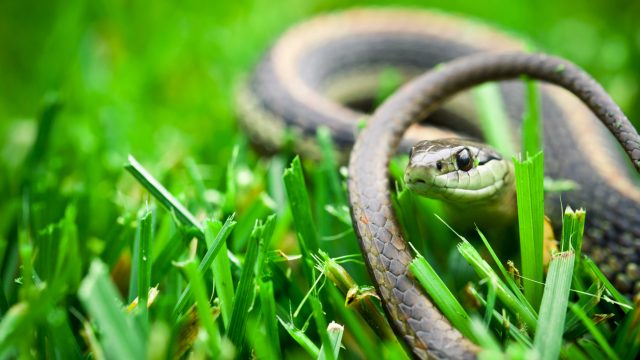
Whether it’s birds stopping by your windowsill for a snack or butterflies gracing your flower beds with their presence, maintaining a good yard is as much about sharing it with nature as it is manicuring it to your tastes. But if you’re not careful, you may be putting out the welcome mat for an unwanted visitor. And according to experts, if you’re looking to avoid attracting snakes into your yard, there’s one common thing you should avoid keeping around. Read on to see which item you should ditch in the name of preventing a reptile invasion.
RELATED: This Is the No. 1 Sign There’s a Snake in Your House, Experts Say.
Hoses could be attracting snakes into your yard.
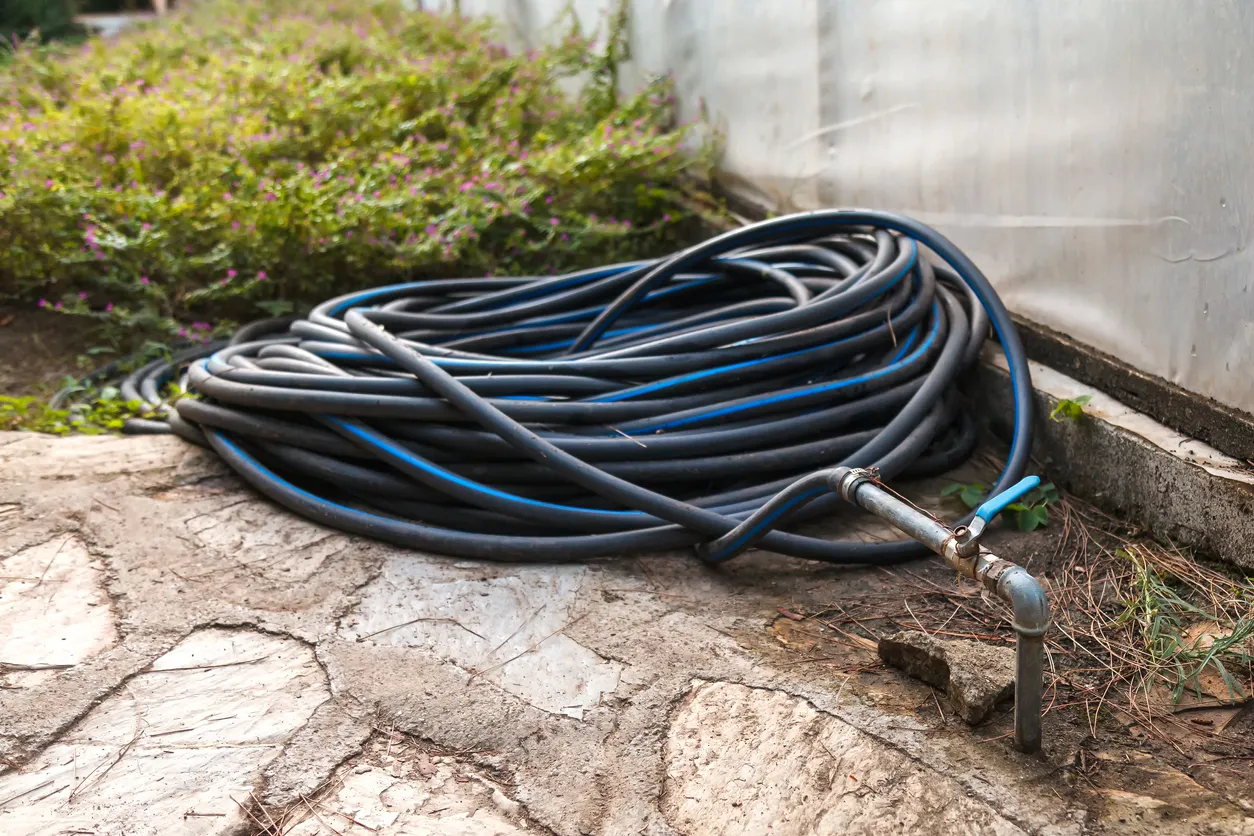
They may be vital to keeping your flowers blooming and your grass green, but garden hoses may also be attracting snakes into your yard. According to the experts at ThisOldHouse.com, piled hoses can provide the perfect type of shelter that snakes seek out to avoid predators and stay warm. Instead of coiling them onto the ground, consider installing a wall mount or a reel that can keep your watering equipment off the ground and stop it from becoming home to a slithering stranger.
Hoses can also create standing water and wet conditions in your yard that snakes love.
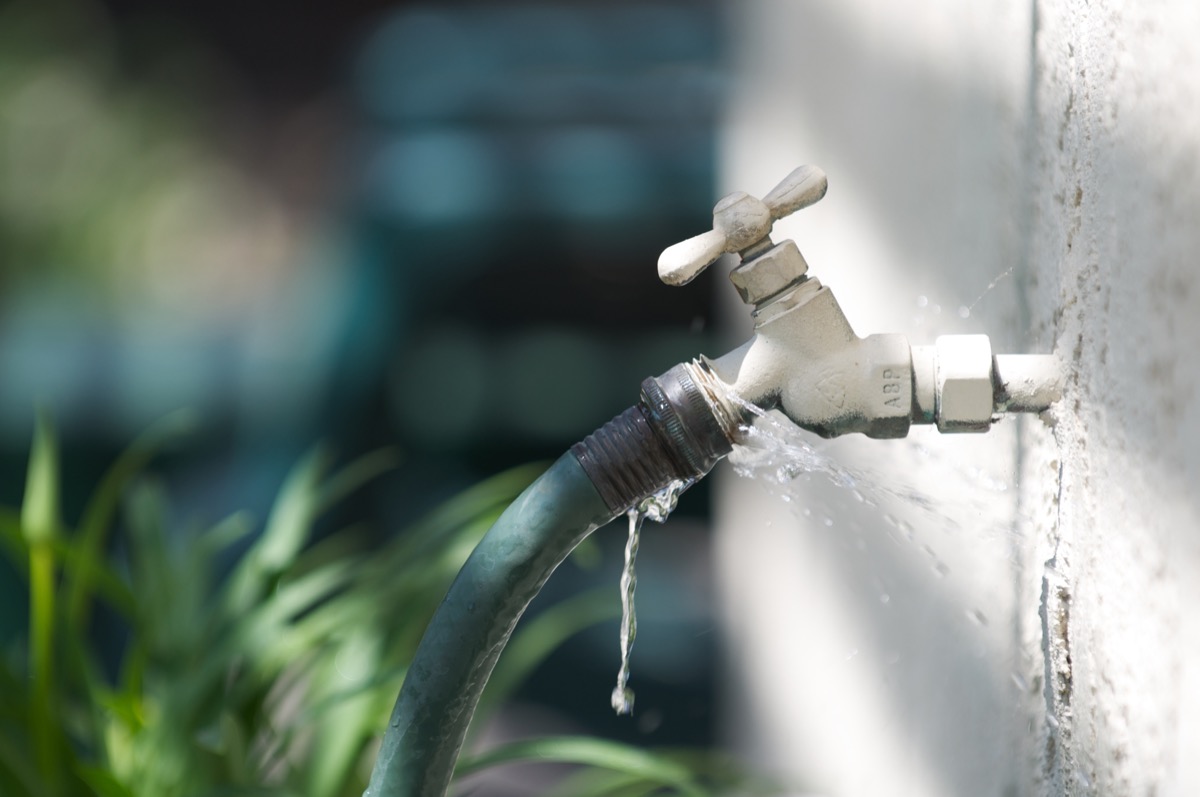
Besides becoming a makeshift shelter, hoses can also have a reverse St. Patrick effect by creating pools of standing water that provide an inviting place for snakes to nest. This is especially true if your hose is connected to a remote corner of your house with little foot traffic or activity.
Make sure to regularly check your equipment for any holes or small leaks in the hose that might create pools when in use. You should also always turn off the water source from the faucet whenever it’s not in use to avoid any accidental flooding thanks to a leaky nozzle or defective spigot. If you notice that your hose is leaking where it attaches to the faucet, try installing plumber’s tape to create a better seal or replacing the item.
RELATED: If You Smell This at Home, You May Have a Venomous Snake, Experts Say.
Overwatering your grass and garden can create a fertile hunting ground for snakes.
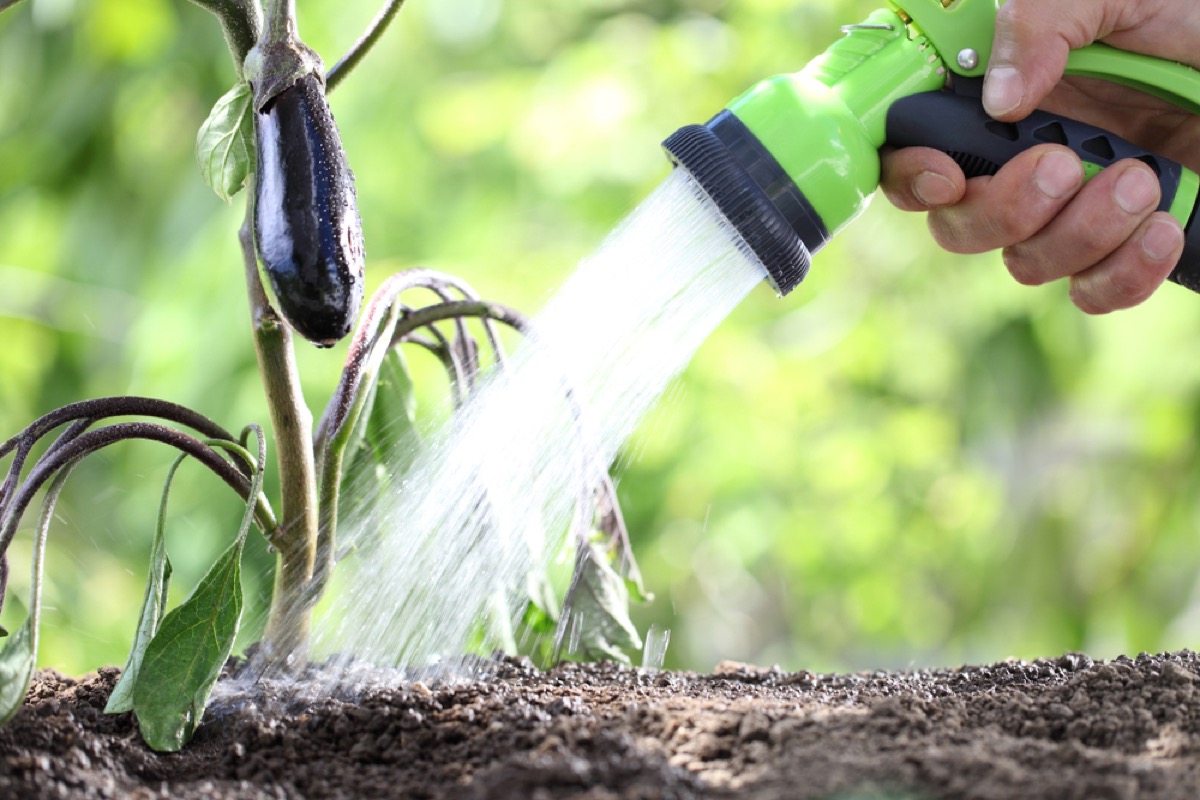
Going overboard on the watering may feel relatively harmless as far as gardening mistakes are concerned. But being heavy-handed on the hydration can also end up attracting creatures such as worms, slugs, and frogs, turning your yard into a buffet for hungry snakes looking for their next meal. If you’re having trouble getting your watering levels just right, consider picking up a sprinkler with a simple timer, installing a smart nozzle or sprinkler that can measure the exact amount of water your lawn needs, or using moisture alarms in low-lying areas where water tends to pool or collect.
For more helpful home tips sent straight to your inbox, sign up for our daily newsletter.
Your hose can also be super helpful in keeping snakes away.
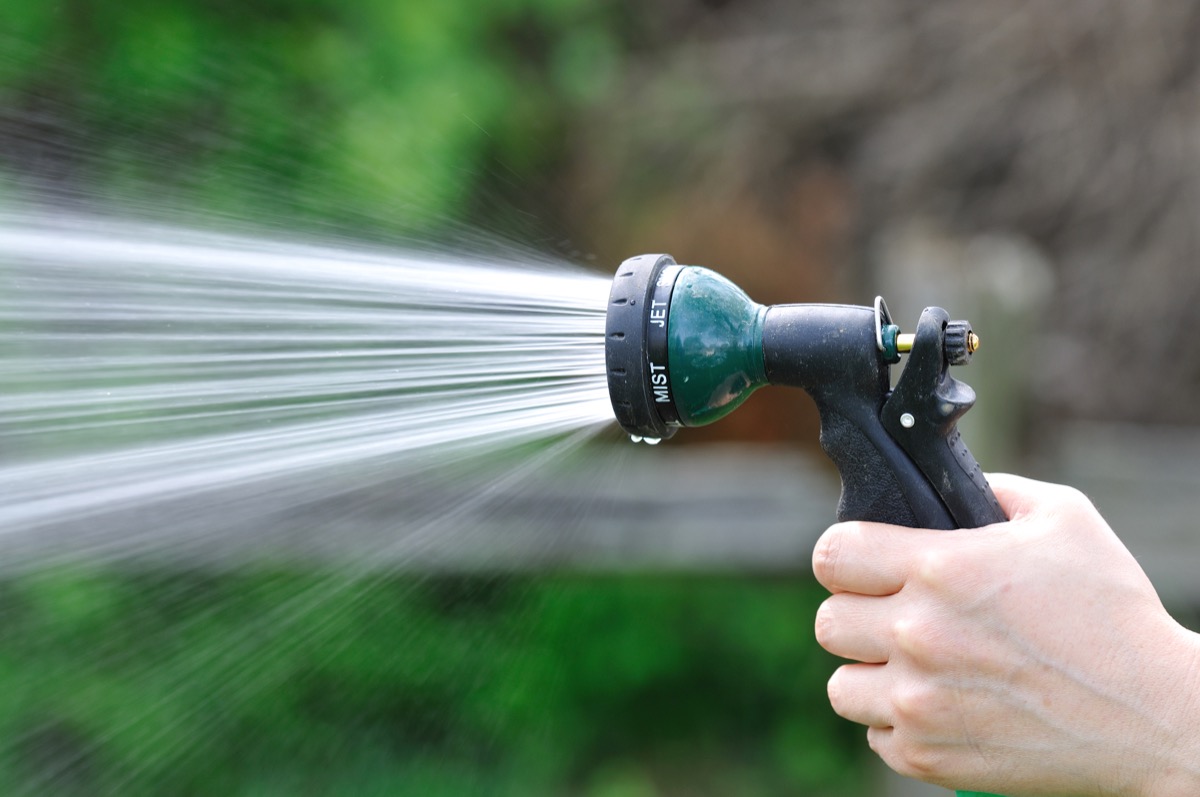
Despite all the ways hoses might end up drawing in snakes, experts point out that that can also be one of the best ways to keep them away. If you notice an unwanted visitor slithering in your lawn or garden, you should never reach for a weapon such as a shovel—and certainly never for a gun, according to experts at Utah State University. Any firearms discharged towards the ground might result in a dangerous bullet ricochet and lead to serious injury.
Instead, use your hose to spray a steady stream of water to gently get the snake to slither away. In most cases, this should be enough for them to move on and find a new place to call home that isn’t so close to where you do your gardening.
RELATED: This Is How Many Types of Venomous Snakes Are in Your State.